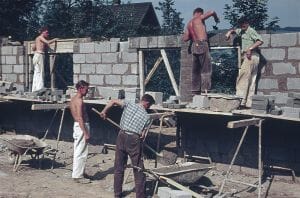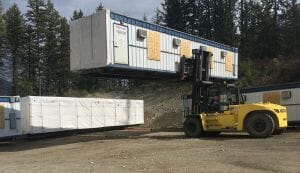Modular Building Institute Statement on Pennsylvania Senate Bill 908
For over forty years, the Modular Building Institute has been the leading advocate for the modular construction industry. Representing over 650 member organizations across the globe, including 28 in Pennsylvania who have offered reliable employment in their communities for years, we strongly encourage the Pennsylvania State Senate to vote against Senate Bill 908. This legislation threatens to severely diminish the modular building industry in Pennsylvania and eliminate this crucial building technique from the Commonwealth.
SB 908 will impose the decades-old construction prevailing wage law into modular manufacturing facilities. This bill demonstrates a fundamental misunderstanding of the modular industry, and will severely limit, if not eliminate, modular construction from working on publicly funded projects in Pennsylvania.
Consequently, desperately needed public works projects will suffer increased costs, longer lead times, and face potential cancellation altogether. Modular construction offers a marketplace advantage. Construction projects that utilize modular are completed faster and are often less expensive than traditional construction. Research has proven that there is also far less waste sent to the landfill using modular construction.
Factory employees often work on multiple projects on a given day – public and private. Employees also work in teams and at stations rather than being segregated by construction trade as often happens on site.
In addition to efficiency in the factory, the industry’s parallel construction methods allow work on site to progress simultaneously, expediting the overall construction schedule resulting in quicker occupancy.
Requiring a modular company to monitor, track, and report on the duties being performed in a factory as if the employee’s tasks were the same as on site would be a logistical nightmare. In some cases, SB 908 could require one employee to receive multiple prevailing wages within the same hour.
MBI’s members also offer a wide array of employee advantages not found in traditional construction. These include safer indoor workspaces that eliminate environmental hazards, regular work hours, and year-round employment that provide an ideal work-life balance, and competitive pay and advancement opportunities.
Passing SB 908 will hamper modular construction in Pennsylvania, impacting builders located in the Commonwealth as well as those based in other states. Critical public works projects, from affordable housing and schools to public recreational and healthcare facilities, will see sharp cost hikes and prolonged construction timelines. With the added impact of tariffs already creating construction uncertainty, Pennsylvania cannot afford SB 908. We ask all Pennsylvania Senators to vote NO on SB 908.
Additional Government Affairs Articles
MBI Secures NY Governor Veto On Bill Targeting Modular Industry
A large fleet owner member of MBI was recently delayed in Georgia due to the state’s confusion over the details of the International Building Code. According to the company’s regional general manager, “The feedback we got was, ‘Your plans are not up to date, you need to bring them up to code.’”
Here’s how MBI was able to correct the state’s misunderstanding.
Read Complete ArticleWhat is the Davis-Bacon Act and How Does it Affect Modular Construction?
Adopted in 1941, the Davis-Bacon Act was written long before the modular construction industry gained momentum. Now, the US Dept. of Labor is considering applying the law in ways that will seriously curtail the use of modular construction for federal and state projects.
Read Complete ArticleMBI Solves Relocatable Building Code Issues in Atlanta
A large fleet owner member of MBI was recently delayed in Georgia due to the state’s confusion over the details of the International Building Code. According to the company’s regional general manager, “The feedback we got was, ‘Your plans are not up to date, you need to bring them up to code.’”
Here’s how MBI was able to correct the state’s misunderstanding.
Read Complete ArticleMBI Helps Kick-Start Stalled Plan Review Process
Modular projects in Washington State had ground to a halt. Plan review lead times began stretching into six, eight, even twelve weeks. “Over the summer of 2021, it was getting even longer than that,” says Alan Rasmussen of Modern Building Systems. “By the fall and winter of 2021, reviews were taking 24 weeks.”
Here’s how MBI was able to get things moving again.
Read Complete Article- « Previous
- 1
- 2
- 3
- 4
- Next »




